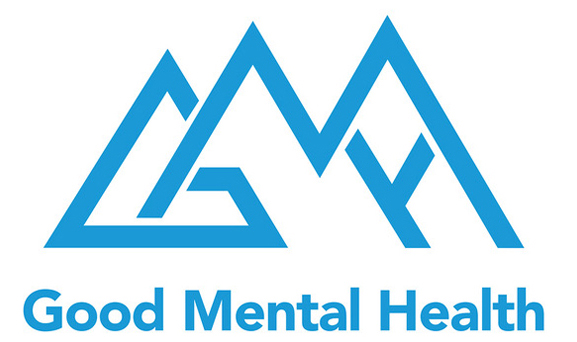Our ability to maintain close personal relationships is literally a matter of life and death.
I know that sounds dramatic, but it’s true.
The number one predictor of human longevity is a person’s ability to cultivate and maintain close personal relationships.
As John Robbins reveals in his book, chronic loneliness ranks as one of the most lethal risk factors in determining premature mortality.
The normal stresses of daily life create a physiological response within our bodies, increasing heart rate and blood pressure, releasing stress hormones such as cortisol, adrenaline, and noradrenaline. However-more than eating well, getting enough sleep, and not smoking combined- the antidote to that biological stress response is the presence of nurturing, supportive relationships. It’s the presence of the people we care about, and who care about us, that allow us to lower our anxiety and relax, giving our bodies and minds a reprieve from the chronic stress of daily life.
Improve Relationships: Stop Being Nice
Whether it’s with our significant other, our friends, our parents, our co-workers, or our children, we need love, harmony, and nurture from those around us. We share the common desire to understand as well as to be understood. We have an intense biological need to increase our interpersonal connections.
Our very lives depend on it!
That’s why it’s tragic that so many of us feel disconnected and lonely. Despite our best efforts to be courteous, helpful, friendly, and accommodating, we still feel distant, unwanted, taken-for-granted, and misunderstood. We attempt to fit in, put our best foot forward, and say all the right things in order to be accepted and yet, we still feel rejected.
Why?
We’re being too damn nice.
Niceness can take many forms. On the surface, “nice” seems to be a positive way to interact with the world. Helpful, friendly, considerate people getting along with each other. But, taking a closer look at what it actually means to be “nice,” we can see that niceness is actually an inauthentic behavior for the purpose of manipulation.
“Nice” is a tactic we use to ingratiate ourselves to others. The reason we are ingratiating ourselves is because the other person has something we want. Superficially, we may say we want their friendship. Dig a little deeper and we may find we have a desire for their praise, recognition, encouragement, and attention. Dig even deeper and we may find that we are really unhappy with ourselves and decide we want to be more like this other person- to do what they do, and have what they have. So we imitate, emulate, and ingratiate ourselves to them.
Niceness becomes a way of hiding who we really are.
Think about it: we tend to be “nice” to people who can help us in some way. We wear our best suit to the dinner party, present an expensive bottle of wine to our host, stay clear of inflammatory topics of conversation such as religion or politics, placate, acquiesce, laugh at things we may not find funny; all part of making a concerted effort to appear as nice as possible in order to win the favor of the person we are trying to impress.
Don’t get me wrong, nice isn’t always a bad thing. Nice can get us promotions, raises, awards, and recognition.
What nice can’t get us is deep connection with other people.
Nice is fear-based
At it’s core, niceness arises from a lack of authenticity based on fear.
We fear that we won’t be accepted. We fear that other people won’t like us if we reveal our true selves. We fear that we aren’t good enough as we are. We’re too afraid to put ourselves out there, with faith that we are always in the right place, doing the right thing, at the right time.
A Course In Miracles states there are only two emotions: love and fear. By choosing one, we have no choice but to reject the other because they are polar opposite emotions. So, if niceness arises out of fear, we know that it cannot come from a place of love.
Nice people are afraid of offending other people, of saying the wrong thing, of behaving the wrong way.
Nice people are afraid of being themselves.
Nice people are self-sacrificing. But, they give and do for others to meet their personal needs. In exchange for their self-sacrifice, they expect acceptance, recognition, and praise.
In order to get their needs met, self-sacrificers will continue to give and give, depleting themselves in the process. They eventually become resentful of all that has been “taken” from them in their pursuit of connection but, out of fear of losing what connection they have made, they keep up the pace. Nicety, inauthenticity, obligation, resentment.
It’s this lack of authenticity which breeds disconnection.
Kind is love-based
Have you ever noticed, kind people don’t concern themselves much with being nice?
Of course some kind people are very nice, and some nice people are very kind, but kind people don’t really worry about how nice they are in general.
Why is this?
Because they aren’t concerned with manipulation.
There’s a veterinarian on T.V. whose mission is offering low cost veterinary services to those in need, but with one stipulation: anyone who brings their pet to him for care must agree to have their animal spayed or neutered. He’s passionate about his mission and often states, “no animal should have to die just for being born.” He has a booming business, he’s a masterful surgeon, and he appears to be one of the most compassionate human beings on T.V.
However, his manner is not overly nice and he makes no apologies for it.
He is tough on his staff and expects a high level of performance. He is honest with his clients and doesn’t make promises he can’t keep. He could definitely be softer, friendlier, and more approachable.
Basically, he could be nicer. But why?
There really is no need. He does so much good for the world through his passion and dedication to his mission, and he’s not out to manipulate others into earning their favor. He is who he is and his actions speak for themselves. He’s kind, compassionate, and fair.
When you are aligned with your mission, niceness doesn’t factor into the equation because living authentically becomes automatic.
No manipulation required.
Kind people are selfish
Kindness stems from empathy and love, and kind people tend to focus more on the things that truly make them happy: things which bring them joy, things in alignment with their authentic nature.
Kind people, because of their alignment with their higher purpose, are “selfish” in comparison to nice people because they often say NO to people, projects, and things that take them away from their passion and purpose.
Kind people will work, create, struggle, and celebrate, whether or not others notice. They identify a need that speaks to their heart and their mission in life becomes meeting that need.
Like a masterful veterinarian who could charge a lot more but instead offers low cost veterinary services so that animals do not have to die just for being born.
Kindness, and a selfish commitment to our purpose in life, deepens our capacity for connection with others and THIS is what improves our relationships.
Being kind improves connection with others
Living in the flow of our Divine nature requires authenticity and, as anyone who has unapologetically put themselves out there knows, it takes a thick skin to be able to maintain that commitment over time.
Finding our purpose, and working toward that purpose, inevitably draws attention, judgement, and criticism from others who are not so inclined.
However, it also draws to us other like-minded people working in alignment with their higher purpose.
And because we become surrounded with other authentic people, the need to make nice and ingratiate ourselves to each other becomes obsolete.
As a result, something interesting happens…
Instead of being nice, we become pleasant.
Instead of ingratiating ourselves, we develop genuine interest in others.
Instead of engaging in superficial relationships, we begin to really connect.
We find that we love being around the people we’re with. We’re comfortable. We can be ourselves. We can speak freely and compassionately about our common interests and beliefs.
Among these deeper connections, true friendships form.
We care.
And when we care, we interact with kindness, fairness, honor, and respect.
We connect.
Acceptance is found.
And our needs are met.
As always, if you found this information helpful, please share it. And if you feel you are in the exact right place and would like access to more resources and guidance, read more about the Good Mental Health team and join us on Facebook.
References:
https://www.psychologytoday.com/blog/stronger-the-broken-places/201304/the-surprising-secret-health-and-longevity




 Hi, I'm Diana Brummer a psychotherapist, writer, and coach in St. Johns, Florida. I love helping people thrive in their relationships and their lives. My hope is that you find the information in these articles educational and useful. Thank you for stopping by!
Hi, I'm Diana Brummer a psychotherapist, writer, and coach in St. Johns, Florida. I love helping people thrive in their relationships and their lives. My hope is that you find the information in these articles educational and useful. Thank you for stopping by! 
